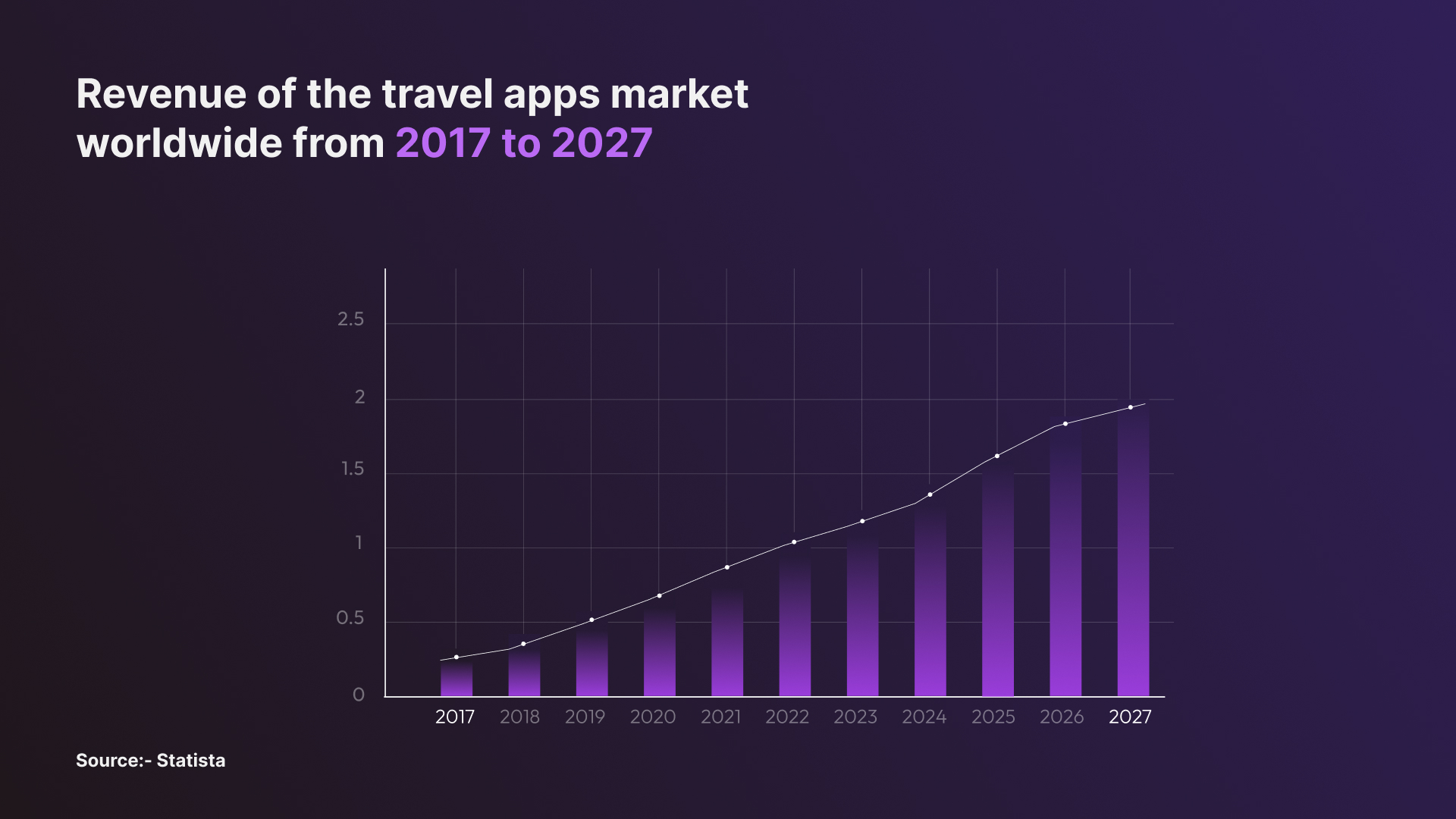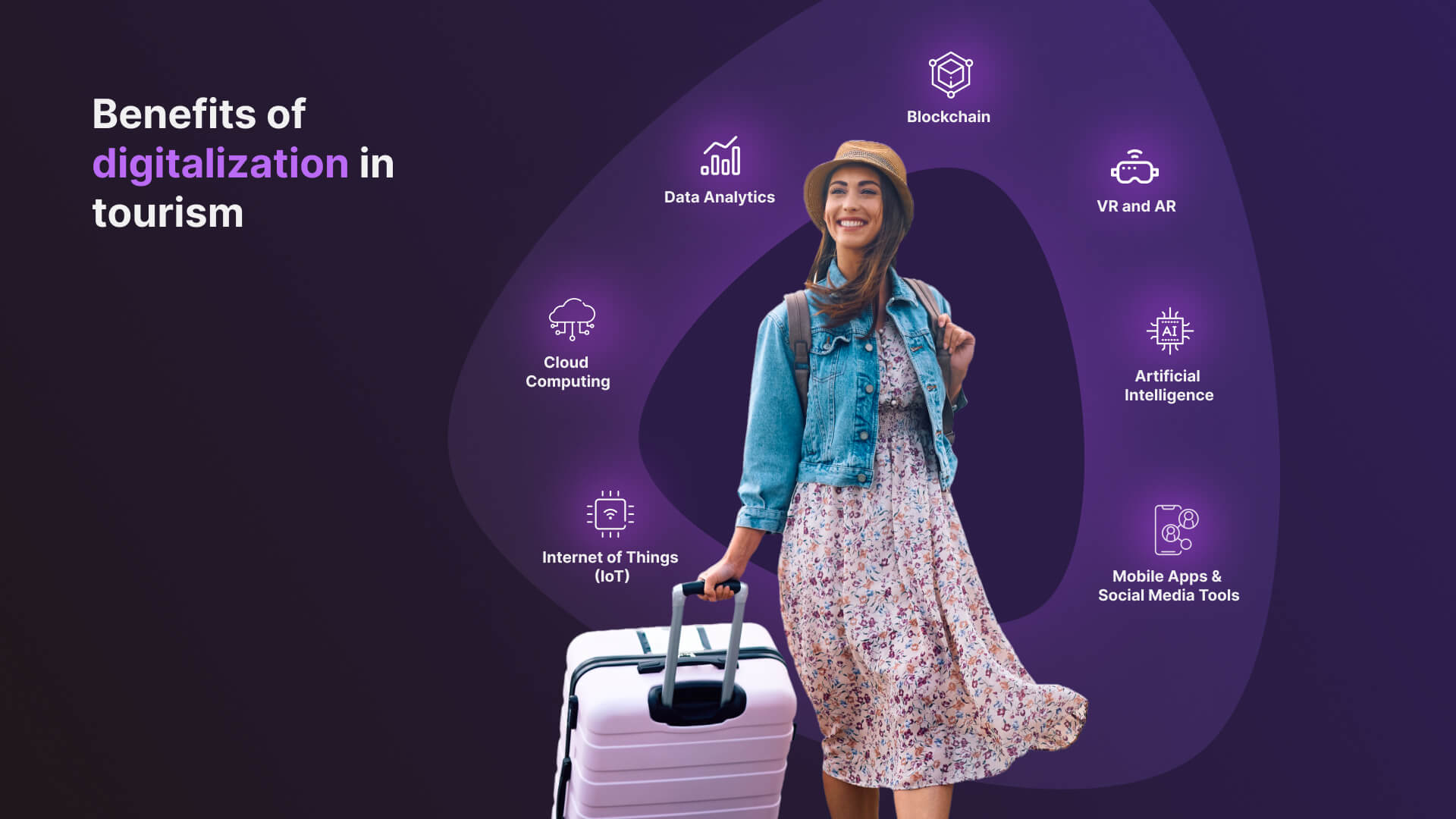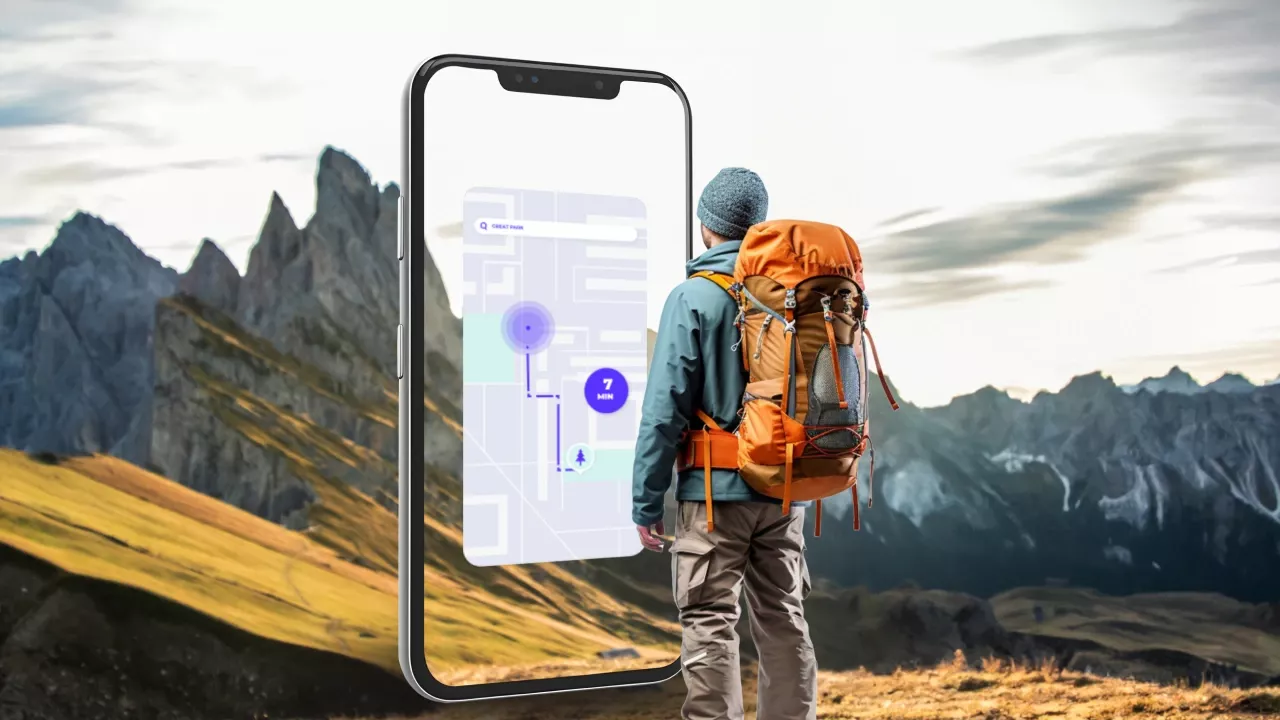The Power of Data Visualization Using Tableau
Digital Transformation in Travel: Navigating the Future
Modern travelers seek personalized, efficient, and innovative experiences, needs that digital transformation in travel fulfills. This shift is not just improving how businesses operate but also helping them stay competitive in a fast-changing market.
Technological advancements in the travel industry have evolved rapidly over the past few years, especially after the COVID-19 crisis, propelling industries to thrive digitally.
Digital transformation integrates technology to improve operations and customer engagement. For example, mobile apps streamline check-ins and boarding, while AI chatbots handle traveler queries, improving efficiency and enhancing the overall customer experience.
Travel brands willing to establish or enhance their niche in the sector must understand how digital transformation technologies work to tap into their immense potential further.
What is digital transformation in travel, and why is it important?
Digital transformation in the travel industry integrates technology into every area of business. This helps simplify processes and reshape all aspects of tourism.
The primary goal of incorporating digitization in the travel and tourism sector is to refine the customer experience while keeping up with the constant evolution. It also includes reshaping the operational frameworks of travel businesses to enhance efficiency and streamline processes.
Digital transformation in travel industry is important to stay competitive in the fast-evolving technological landscape. Here’s why your travel business should prioritize this transformation:
Keeping Up With Customer Expectations
In the travel sector, customer expectations have shifted towards seamless, tech-driven experiences. Travelers now demand smooth interactions across multiple channels. For instance, travel agencies with web platforms should also offer mobile apps to simplify bookings and enhance customer loyalty.
Improved Efficiency
Digital transformation helps travel businesses streamline operations by automating processes and reducing manual errors. For example, online systems enable staff to access booking data and collaborate in real-time, ensuring smoother trip management and quicker customer responses.
Cost Savings
Adopting digital tools can reduce costs in the travel industry by automating repetitive tasks and optimizing resources. For instance, using cloud storage eliminates the need for physical servers, saving on maintenance while improving data accessibility and scalability.
Enhanced Security
Travel businesses handle vast amounts of sensitive customer data, from personal information to payment details. Digital transformation enables advanced security measures like encryption and multifactor authentication to protect data and reduce the risk of breaches.
Influence of Digital Technologies on the Travel and Tourism Industry
According to the latest reports by Statista, more than 50% of travelers worldwide resort to online travel apps when planning every detail of a trip in 2023. From a simple online hotel review search to a complete virtual destination tour, the reliance on travel apps can be observed now more than ever.
Travel agencies also report a significant rise in the demand for personalized tours and exclusivity. Global customization and personalization in the tourism market are expected to grow at a CAGR of 17.8% over the next decade, with data analytics, AI, and IoT going beyond precision in understanding and predicting customer behavior.
The 'Revenue By Segment' in the 'Travel' segment of the app market is projected to grow by 0.8 billion U.S. dollars (+64%) from 2023 to 2027, reaching a new peak of 2 billion U.S. dollars in 2027. This marks the tenth consecutive year of growth for this indicator.

Travel brands willing to establish or enhance their niche in the sector must understand how these technologies in digital transformation work to tap into their immense potential further.
How Does Digital Transformation in Travel Industry Drive Growth?
The travel industry is fast-paced and highly competitive. Digital transformation in travel industry allows businesses to adapt quickly to changing market demands, such as sudden shifts in travel trends or new customer preferences, giving them a critical edge in the market.
Data Analytics
Using data analytics and visualization to identify patterns in a customer’s journey helps companies better understand their customers' needs. Travel businesses can use data analytics as part of their digital transformation strategy to offer personalized recommendations and offers based on a user’s behavior history. This is done by automatically tracking and storing real-time data, such as purchase history and customer interactions, to operate web analytics.
Businesses can also use data mining to understand and implement the most effective pricing strategies and deals to enhance sales. For example, airlines can predict demand patterns and optimize flight schedules and pricing strategies using dynamic pricing for maximum efficiency.
Artificial Intelligence (AI)
From real-time chatbots to personalized recommendations, Artificial Intelligence reshaping the travel experience. It enhances hotel and airline customer service while lowering operational expenses.
Businesses can ease a customer’s research process with near-accurate predictions of flight availability, hotel and airline prices, and suggestions on the go for creating compelling itineraries. The latest usage of AI also includes helping airlines tackle weather challenges with satellites and sensors.
VR and AR
Virtual reality (VR) takes the entire process of researching one’s destination before planning a trip up one notch with virtual tours. Travel and hospitality solutions using VR can let travelers see around their hotel rooms and campsites before booking. They can also walk through locations virtually before finalizing their itineraries. Although several companies have yet to adopt digital technology, the size of the VR market is expected to grow to more than $12 billion by 2024.
Another advantage of augmented reality (AR), which can help elevate the whole touring experience, is audio-visual elements like music, narration, and additional content. Using virtual and augmented reality, companies can also tap into the potential of helping people with mobility issues enjoy traveling experiences worldwide from the comfort of their homes.
Internet of Things (IoT)
The Internet of Things makes enhanced personalization possible via sensors and smart gadgets. Hotels can use IoT as part of their digital transformation strategy to let travelers operate several appliances from a central operating device, aiding in hassle-free check-in and baggage detection.
Additionally, travel companies can notify customers with location-specific information, such as nearby attractions and eateries, making navigation easier. Smart energy-saving features of IoT devices can also help businesses curtail unnecessary costs.
Cloud Computing
Businesses looking to scale their operations up or down can do so quickly with automated processes based on fluctuations in storage demands. Cloud enables seamless data sharing across multiple channels, letting airlines and hotels arrange inventory according to updated requirements, improving operational efficiency and reducing costs.
Mobile Apps & Social Media Tools
Digital transformation in travel empowers businesses to enhance traveler experiences through mobility solutions, offering real-time, location-specific updates via mobile apps. These technologies ensure travelers stay informed and engaged throughout their journey.
Blockchain
Blockchain is another important technology in the digital transformation of travel and hospitality, and it enhances security. Businesses can unlock their potential to provide better transaction privacy and data protection, ensuring better security.

What challenges can digital transformation initiatives overcome for the tourism industry?
Recent developments in the tourism sector reinforce the importance of digital transformation. Travel brands can overcome the following significant challenges by integrating digital technologies into their businesses.
Improving Brand Reach across Multiple Channels
Digital channels provide vast opportunities to expand your brand's visibility. You can connect with a broader audience and establish a strong online presence by strategically leveraging various platforms.
Streamlined and Secure Transactions
Transparent, seamless, and secure transactions build trust and encourage repeat business. Implementing user-friendly payment systems and clear communication throughout the purchase process enhances customer confidence and satisfaction.
Authentic Travel Experiences
Authentic travel and guest experience result in trips that leave lasting memories for customers. By showcasing local culture, off-the-beaten-path destinations, and unique activities, you can differentiate your offerings and appeal to discerning travelers.
Personalized and Flexible Itineraries
Personalized itineraries cater to individual preferences and needs, increasing customer satisfaction. Offering flexible options allows travelers to tailor their trips, creating a sense of control and customization that many modern tourists value.
Quality services while Maintaining a Budget
Traveling on a budget doesn’t mean sacrificing the quality of services. By carefully curating options and leveraging partnerships, you can provide excellent value to customers without sacrificing your profit margins.
Online travel market size
The global online travel industry's market size surged in 2023 compared to the previous year. After declining to 225 billion U.S. dollars due to the COVID-19 pandemic, the market rebounded in 2022 and continued to climb in 2023, approaching 600 billion U.S. dollars. This trend is anticipated to persist, with the market expected to surpass 800 billion U.S. dollars by 2028.
Are you ready to transform the future of travel?
Implementing the latest digital technologies is critical for businesses to remain competitive. The digital transformation success of your travel agency is defined by the positive impact you make on customers' journeys.
Incorporating AI/ML, data analysis, and automation into existing business processes can optimize efficiency while sustaining a company's digital presence and helping it keep up with rapidly evolving market trends. The rise of digital transformation in travel and tourism underscores the need for continuous technological innovation to thrive in the modern travel industry.
Email us or Talk to us at +91-98367-81929 or Simply Contact Us through the website.
Let's Connect









